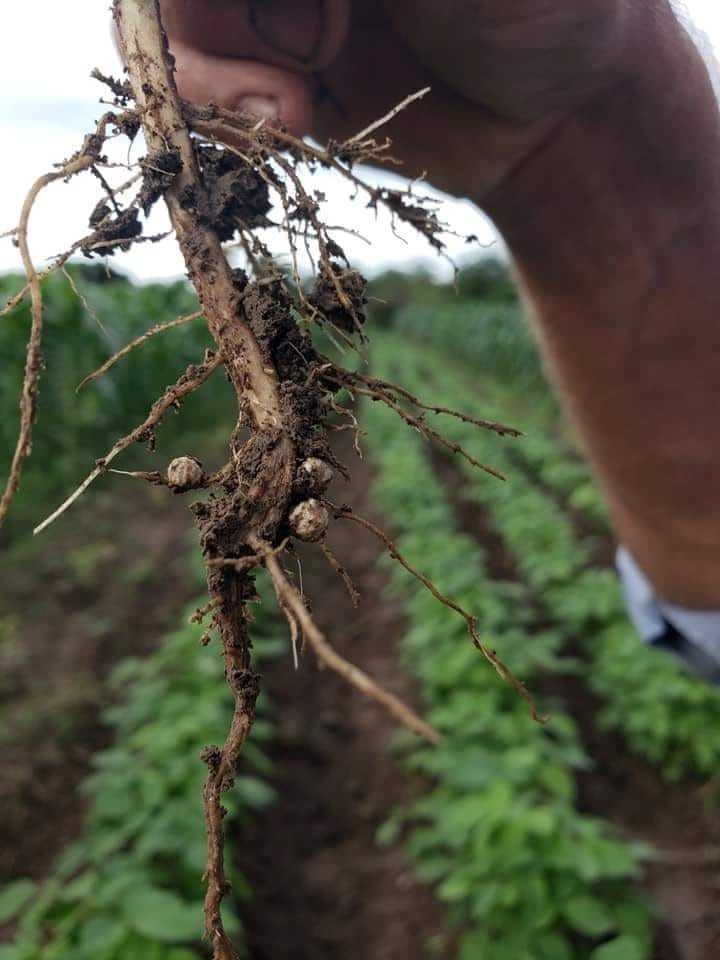Inoculant
Soya beans is originally from Asia. The bacteria that makes root nodules that allow legumes to make their own nitrogen are not found in other places around the world.
Scientists, once they saw that Soya beans were not making nitrogen like other legumes, made a plan to go to the origin of Soya beans and get the correct bacteria for the job.
The bacteria was aptly named ‘Rhizobuim japonicum.’ In simple language, root bacteria from Japan.
Since then, this has become a standard input where Soya beans is grown.
A well inoculated crop under good management can make up to 90% of its nitrogen from these bacteria. When compared to using urea this would, in the best case, be the same as applying 10 bags of urea per hectare.
10 bags of urea would cost at least 9000 kwacha, inoculant for 1 hectare costs around 100 kwacha. No-brainer.
After successful inoculation of soya beans on a field, it is possible that there will be enough bacteria in the field that you don’t need to re-apply again. However, the common advice is that if the field has not had inoculated Soya beans for 3 years, then you will need to re-apply inoculant to build up the bacteria.
Soya beans varieties
The other thing scientists did was to breed varieties that make their own nitrogen with local bacteria. These are called, ‘self-nodulating’ or ‘promiscuous’ varieties. In Zambia, we have several of these: Kafue, Magoye, Lukanga, Kaleya.
So, in summary, if you’re not using inoculant, better go for a self-nodulating variety. However, even these varieties perform better with inoculant.
If you’re not using self-nodulating varieties, better use good quality inoculant.
Last point on inoculant. There is currently no legislation to protect farmers with regards to certifying inoculant. There are some people who are using this to their advantage and putting out of date and gonga (substandard) products.
ZNFU are aware of this and hopefully they will be able to encourage relevant authorities to take action to protect us farmers.
by Sebastian Scott
